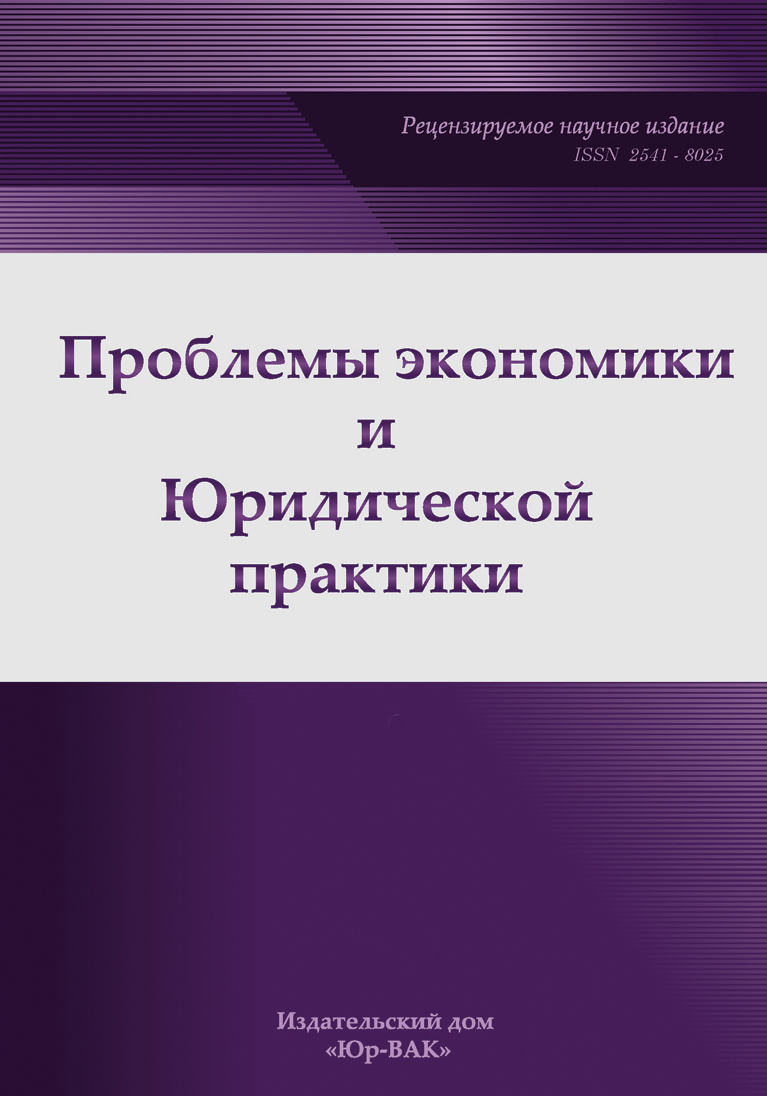The Factor of Trust in the Functioning of Modern Digital Platforms
- Authors: Zambalaeva T.B.1
-
Affiliations:
- National Research Tomsk State University
- Issue: Vol 18, No 1 (2022)
- Pages: 137-140
- Section: Articles
- URL: https://journals.eco-vector.com/2541-8025/article/view/532080
- ID: 532080
Cite item
Abstract
The aim of the work is to study the role of trust in the structure of transactions made on digital platforms. Trust on digital platforms is built through reputation ratings, reviews, and comments. The study is being conducted on the Wildberries digital platform. The sample included 62 reviews posted on the platform from 22.06. 2021 to 01.21.2022 in the product category «headsets and headphones». The main method of analysis is econometric analysis in RStudio. From each review left, data was collected, namely, a rating score, the presence of a review with a photo, an image in the user's profile (avatar), additional information about the user, gender, user activity and the total period of registration on the platform. As a result, out of 62 reviews, negative reviews are given by men. The gender distribution of reviewers is 42 women and 20 men. In general, buyers pay attention to the rating score, reading the content of the reviews, considering it a more informative factor. A high product rating helps to reduce the degree of uncertainty when making a purchase decision. Thus, online reputation on the platform is essential for making a purchase and is considered a key signal for demonstrating trustworthiness towards market participants.
Keywords
Full Text
About the authors
Tuyana B. Zambalaeva
National Research Tomsk State University
Email: zambalayeva@mail.ru
Post-Graduate Student Tomsk, Russian Federation
References
- Veselov Yu. V. Trust in a digital society // Bulletin of St. Petersburg University. Sociology. 2020. No. 2. Vol. 13. P. 129-143.
- Gritsenko A.A., Lipov V. V. Information Platforms as a Network Institutional Transformation // Journal of Institutional Studies. 2020. V.2. No. 12. pp.132-148.
- Gubanova S.E. Trust as a Basis for Harmonizing the Interaction of Business Structures in the Digital Economy // Bulletin of the Volga University named after V.N. Tatishchev. 2018. No. 1(2). pp. 134-141.
- Josang A., Ismail R., Boyd S. An overview of trust and reputation systems for online service delivery // Decision Support Systems. 2007. Vol. 43. No. 2. P. 618-644.
- Dmitrieva N.E., Zhulin A.B., Artamonov R.E., Titov E.A. Assessment of digital readiness of the population of Russia // Nat. research University «Higher School of Economics». 2021. 86 p.
- Egorova N.E., Koroleva E.A. Methods for assessing the level of trust of economic entities: a classification scheme and comparative analysis. Bulletin of the CEMI RAS. 2018. №2. Vol. 1. P. 1-4.
- Islamutdinov V.F. Institutional Changes in the Context of the Digital Economy // Journal of Institutional Studies. 2020. No. 12(3). pp. 142-156.
- Martyanov V.S. Institutional Trust as an Economic Resource: Incentives and Barriers to Efficiency // Journal of Institutional Studies. 2018. No. 1. Vol. 10. P. 41-58.
- Nikishina E.N. Trust and sharing platforms // Bulletin of Moscow University. Series 6. Economy. 2020. No. 4. P. 71-83.
- Nurmukhametov R.K., Torin S.S. Digital trust (digital trust): the essence and measures to improve it // News of the Tula State University. Economic and legal sciences. 2020. No. 1. P. 32-39.
- Osipov Yu.M., Yudina T.N., Gelishanov I.Z. Digital Platform as an Institute of the Technological Breakthrough Epoch // Economic Strategies. 2018. No. 5. pp. 22-29.
- Ryzhkova M.V., Chikov M.V. Institutional nature of digital platforms // Bulletin of the Buryat State University. Economics and Management. 2019. No. 4. pp. 72-80.
- Adis J. Trust-based determinants of future intention to use technology // Foresight and management of NTI. 2020. No. 1. Vol. 14. pp. 60-68.
Supplementary files









